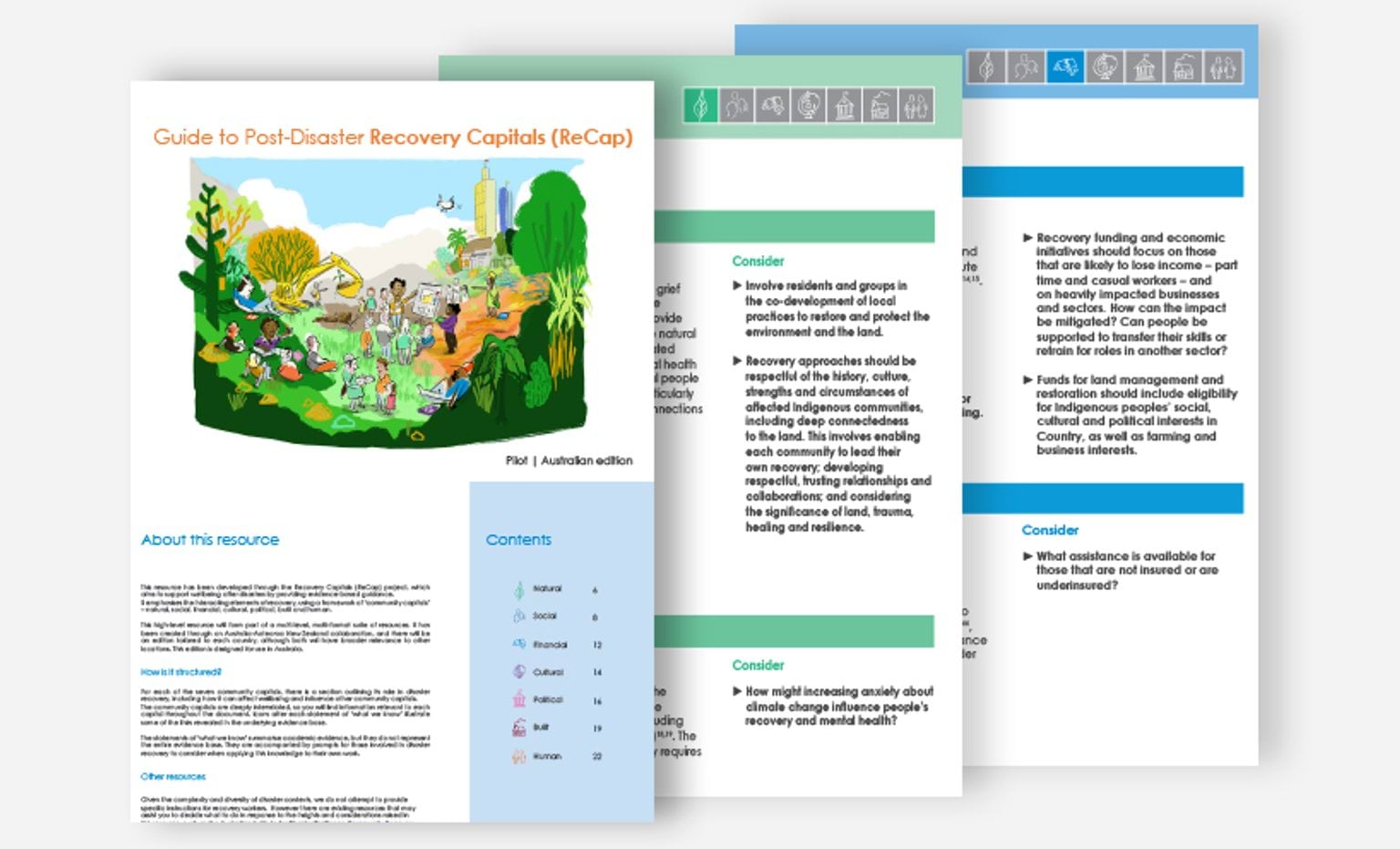
Link to resource
This resource is hosted on the Phoenix Australia Disaster Mental Health Hub(opens in a new window).
PDF DOC | 9.48MB
Details
| Title | Guide to Post-Disaster Recovery Capitals (ReCap) |
|---|---|
| Owner | University of Melbourne, Australian Red Cross, Massey University, Bushfire and Natural Hazards CRC |
| Date last updated | May 2021 |
| Resource type | Tool |
What is this about?
This guide is for people, organisations and governments engaged in disaster recovery. It aims to support wellbeing after disasters by providing evidence-based guidance to aid decision-making, encouraging strengths-based, holistic and inclusive approaches to recovery.
Who is this resource for?
- State Government
- Local Government
- Community Service Organisations
- Non Government Organisations
- Community Recovery Committees
Table of contents
Natural capital
- Connection
- Climate change
- Risk and barriers
- Restoration
- Remaining and relocating
Social capital
- Relocation decisions
- Community cohesion and participation
- Relationships and support
- Relocate / remain experiences
- Inequities
- Communication
- Physical distancing
- External support
Financial capital
- Financial strain and assistance
- Inequities worsening
- External ties
- Equitable funding
- Insurance and investments
Cultural capital
- Attitudes and norms
- Inclusivity
- Gender
- Cultural cohesion
- Indigenous peoples
- Connection to nature
Political capital
- Indigenous peoples
- Community-led recovery
- Power and voice
- Influencing knowledge
- External support
- Leadership
- Policies and regulations
Built capital
- Damage and restoration
- Risk and resilience
- Social infrastructure
- Remaining and relocating
- Rebuilding appropriately
Human capital
- Supporting others
- Skills and livelihoods
- Recovery workforce
- Local capabilities
- People at increased risk
- Leadership
Updated